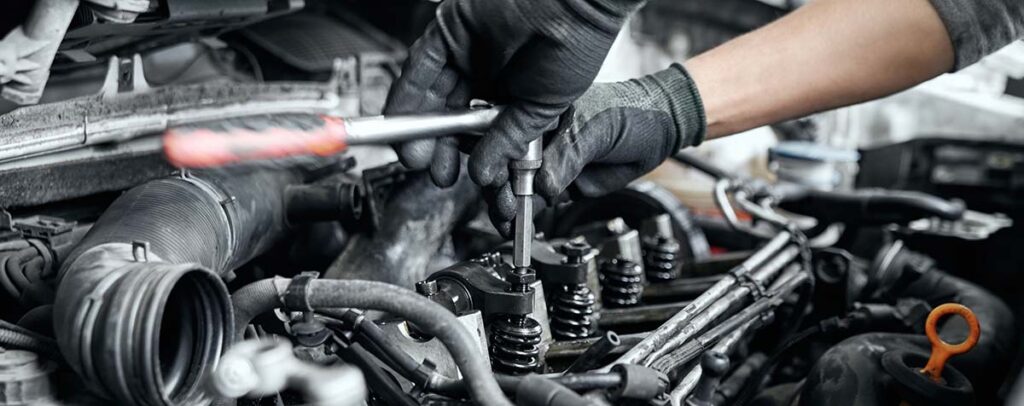
“Valve job”… it might sound weird or even vaguely lewd, but it is an important major step of automotive maintenance. Most engines will last at least 80,000 miles – from our hometown here in Pasadena to the city of Pasadena, Texas and back more than 25 times – before they might need a valve job. But how do you tell when your vehicle might benefit from a valve job? What are the signs to determine if you really need it?
A visual inspection of what’s under your cylinder heads reveals the results of the daily abuse that your valves suffer. The valves operate to get the air / fuel mixture into the combustion chamber, and allow the exhaust to escape. The intake valves control a relatively cool mixture of air and fuel, then seals the opening so that the combustion drives the piston down, while on the exhaust side the valves have to not only maintain a tight seal during combustion, but also vent all of the superheated gases during exhaust. These gases are full of impurities, and over time they will leave dirty deposits caked onto the exhaust valves. The valve face is the critical part of the valve that must maintain a perfect seal to attain the compression needed for performance. Once the seal is no longer perfect, it will result in further degradation, since the hot gases spread to more areas and create more deposits.
Cleaning the valves is often an option. After the valves are cleaned, the valve seats and everything else under the cylinder head should be inspected as well. If the valves are badly dented or severely pitted, then they will have to be replaced to reattain optimal performance.
Worn valves will also lead to increased top end oil consumption. While the valve seat area controls combustion, the valve stem, stem seals, and valve guides control oil consumption in the motor’s top end. Replacing valve stem seals must be done during any valve job, and often times valve guides must also be replaced. If the valve stem itself is worn, the valves must be replaced.
The condition of your engine’s cylinder head valves and seats can have a significant impact on your vehicle’s performance. Even if you drive like a grandma and never rev your engine, the valves take a lot of abuse from the extreme conditions that they operate in. As mileage increases, your valves’ performance degrades from heat and wear. This can cause your engine to experience lower compression and higher oil consumption, potentially leading to accelerated wear on other components. Eventually, this can lead to “burnt valves”.
If you notice any potential symptoms of worn valves, or want to get them inspected before they start causing problems, come in to your Certified Auto Repair Specialist of Pasadena today, or call (626) 793-2220. We are Pasadena’s best automotive repair and service center!

